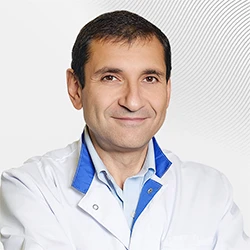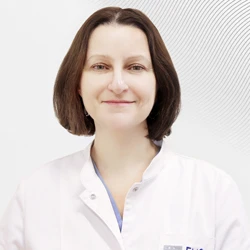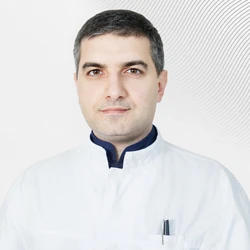Laura Ungar's article "An impressive decline in breast cancer deaths over the past 20 years" in the daily North American edition of USA Today provides amazing statistical calculations on progress in both early diagnosis and approaches to breast cancer treatment. Mortality decreased from 33:100,000 women per year in 1990 to 22:100,000 women per year in 2011. US experts are convinced that this trend will continue over the next 4 years.
This achievement was the result of a complex of reasons.: more effective treatment, increased awareness, and more women who have had mammograms.
According to Susan Komen, head of wellness and social programs, there is a trend towards more targeted and individualized treatment. This is due to the study of the underlying biological aspects of the tumor. Breast cancer treatment is becoming more and more personalized.
The success in treatment is primarily due to the introduction of new classes of cytostatic drugs, such as targeted therapy, which "paralyzes" cancer cells due to unique mechanisms of action on the molecular level, and hormone therapy, directed against the stimulating estrogenic effect.
Targeted therapy is a fairly gentle type of treatment, since it has virtually no adverse effects on healthy organs, and therefore causes fewer side effects.
GEMS experts fully share the optimism of their North American colleagues. The Institute of Oncology performs oncological screening aimed at detecting not only breast cancer, but also cancerous tumors of any other localization. This complex of diagnostic measures is aimed at detecting malignant tumors in people aged 18-39, 40-49 years and over 50 years. In addition, there is a program to identify hereditary predisposition to breast and ovarian cancer, early diagnosis of prostate cancer, and mammological examination for non-cancerous breast diseases.
We never tire of reminding you that regular screening is the only way to detect cancer at an early stage, which means that it can be effectively controlled. So, according to the Mammography Saves Lives service, out of 1,000 women who performed mammography:
-
100 women require additional mammography or breast ultrasound
-
20 women require biopsy
-
5 women are diagnosed with breast cancer.
The EMC Institute of Oncology has all the necessary resources and state-of-the-art medical technologies that provide a personalized approach to breast cancer treatment. The use of targeted therapy along with cytostatic chemotherapy is also possible for lung cancer, ovarian cancer, colorectal cancer, kidney cancer, prostate cancer, malignant lymphomas, thyroid cancer, disseminated melanoma, and tumors of the central nervous system.
Using Western methods of cytostatic treatment, the clinic's specialists can ensure minimal toxicity of the treatment, maintain working capacity during antitumor treatment and achieve the same high results in cancer healing rates as in leading Western clinics.
On March 1, 2015, the EMC launched the social campaign "Second Opinion in Oncology", where patients can receive qualified advice based on the achievements of Western medicine.
Was this information helpful?
Questions and answers
How to lose weight correctly
I am 53 years old, my weigh is 116 kg. In 1988, my metabolism was probably, disturbed following the first childbirth. I gained weight, and since then I have been trying to fight with it periodically. I eat a lot of sweets however glucose is now normal and it always was. With age, my legs and back started to hurt me,
it is hard to “move” myself. I have undergone an examination in the district hospital, but nothing special was found. What tests and examinations I should bring to the doctor to get a diagnosis and treatment? Thank you!
...more Unfortunately, doctors not always can find the cause of excess weight. But this does not mean that there are ways to deal with it. Of course, it is not easy, but you definitely should try! At the first consultation it is desirable to have blood tests results, obtained no more than 6 months ago, total cholesterol,
glucose, glycated hemoglobin. Notes in the diary of blood pressure for 1-2 weeks are also important. Most likely, the doctor will arrange some additional examinations at visit, but everything is very individual and it's better to discuss all details with the doctor personally. You surely have to bring the results of previous all examinations with you.
...more 
Novikova Polina
08 September 2016
Question about ultrasound
I am 36 years old. Thyroid gland ultrasound: topography: position is regular, the right lobe is enlarged W-24 mm, t-22 mm, l- 51 mm, the volume is 12.90 cm3, left lobe enlarged, W -23 mm, t-23 mm, l-56 mm, volume is 14,90 cm3, isthmus thickness is 5 mm, the total volume is 27.09 cm3, alignments are even,
echostructure is inhomogenous, echogenicity is normal, focal masses are not seen, lymph nodes are not seen, conclusion; ultrasound signs of diffuse changes in the enlarged thyroid gland. TSH 2.10 mcIU/ml (normal range 0.30-4.00). The doctor prescribed Iodocomb 50/150 for 3 months. I have been taking the medicine for 2.5 months, but TG does not seem to diminish in size and I feel discomfort (it’s like a need to stretch my neck). Whether the treatment prescribed is correct? Are any additional tests needed? Should I have my thyroid gland diminished for those 2.5 months or it is too early to talk about it? Thank you!
...more It's hard to advice any treatment by correspondence. The cause of the thyroid gland enlargement is still unclear based on the results provided. The most common cause is iodine deficiency and Iodocomb treatment is appropriate in this case. Another cause is a chronic autoimmune thyroiditis which requires different
treatment. Endocrinologists at EMC will advise you and decide on the types of treatment and necessary doses.
...more 
Russ Irina
08 September 2016
Arthrosis
My left jaw started to hurt me after giving birth. The pain was accompanied by a crunch, clicks, discomfort when chewing. Arthrosis was diagnosed at local institution. What should I do?
The symptoms of pain and the crunch may occur following precipitating factors. It can be a trauma of the maxillofacial area, ENT-organs infections, sitting with mouth open for a long time when visiting the dentist, hypothermia, overload. Perhaps, pregnancy and childbirth were such a factor in your case. The treatment
goal in arthrosis is to reduce the load in temporomandibular joint. Treatment depends on the cause or the complex of causes that triggered the arthrosis. This may be due to the anatomical mismatch between the articular head size and the glenoid fossa. This also can be due to the long-term overload resulted from irregular bite and muscle imbalance. If increased tone of the masticatory muscles has led to increased abrasion of teeth, method of treatment with the restoration of the chewing surfaces and cutting edges of all teeth is optimal. But before that, splint therapy (mouth guards) is mandatory, which ensures the optimal position of the articular heads in articular fossae. Treatment is designed depending on the cause of changes in the joint. If the irregular bite is present pre-treatment by the orthodontist may be worthwhile.
...more
Problems with teeth
I have a huge problem with my teeth - all the teeth were treated, metalless ceramics were fixed in some places, a few teeth need to be removed. The treatment was carried out abroad, but the caries problem was beyond control, despite regular professional hygiene and specially selected tools. What range of dental
examinations, in addition to specialist’s consultation, I can count on in EMC Moscow?
...more Various dental diagnostic methods are available in our Dentistry Department: computed tomography of all teeth of both jaws, which gives a three-dimensional image and allows the doctor to more accurately diagnose; orthopantomography gives a flat image of all the teeth; the targeted x-ray tooth image. Tooth extraction
is performed surgically, mostly under local anesthesia. Diagnostic and treatment methods are determined individually by the attending doctor on consultation. Thank you for your message!
...more
How soon I may drive after LASIC?
When can I ride a car after LASIK?
Eyesight recovery is quite fast. Visual acuity is almost completely restored next morning, and most people can drive a car and get to work.

Elias Raid
08 September 2016






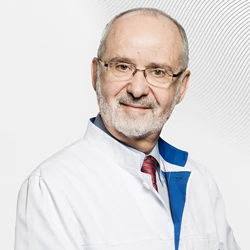



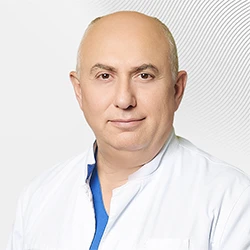
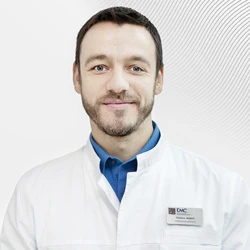






.webp)

.webp)
